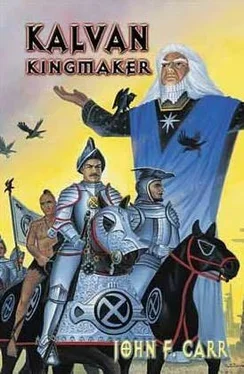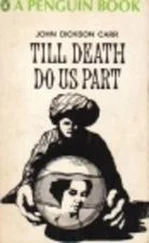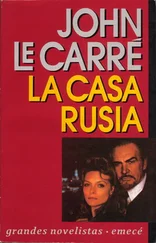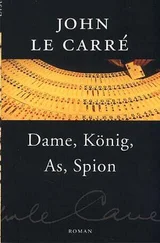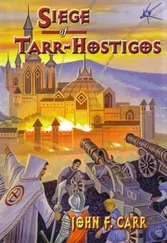John Carr - Kalvan Kingmaker
Здесь есть возможность читать онлайн «John Carr - Kalvan Kingmaker» весь текст электронной книги совершенно бесплатно (целиком полную версию без сокращений). В некоторых случаях можно слушать аудио, скачать через торрент в формате fb2 и присутствует краткое содержание. Жанр: Фантастика и фэнтези, на английском языке. Описание произведения, (предисловие) а так же отзывы посетителей доступны на портале библиотеки ЛибКат.
- Название:Kalvan Kingmaker
- Автор:
- Жанр:
- Год:неизвестен
- ISBN:нет данных
- Рейтинг книги:3 / 5. Голосов: 1
-
Избранное:Добавить в избранное
- Отзывы:
-
Ваша оценка:
- 60
- 1
- 2
- 3
- 4
- 5
Kalvan Kingmaker: краткое содержание, описание и аннотация
Предлагаем к чтению аннотацию, описание, краткое содержание или предисловие (зависит от того, что написал сам автор книги «Kalvan Kingmaker»). Если вы не нашли необходимую информацию о книге — напишите в комментариях, мы постараемся отыскать её.
Kalvan Kingmaker — читать онлайн бесплатно полную книгу (весь текст) целиком
Ниже представлен текст книги, разбитый по страницам. Система сохранения места последней прочитанной страницы, позволяет с удобством читать онлайн бесплатно книгу «Kalvan Kingmaker», без необходимости каждый раз заново искать на чём Вы остановились. Поставьте закладку, и сможете в любой момент перейти на страницу, на которой закончили чтение.
Интервал:
Закладка:
From what Kalvan had been able to piece together from oral history, a few old parchments from Tarr-Beshta and local legends, a large group of Indo-Aryans had migrated east into China, rather than south and west into Macedonia, Greece and the Anatolian peninsula. After crossing the Asian land mass, some of the migrating tribes had built small ships and sailed their way along the Kuriles and the Aleutians, down the coast of Alaska and Canada, bringing with them their foods, horses and cattle, their iron-making skills, and their weapons, the battle ax and the sword.
From ancient parchments recently discovered amongst the rat's-nest of former Prince Balthames' treasury-which included everything from gold ingots to the former Prince's baby teeth-Kalvan had learned new information about these early migrations. There hadn't been just one big migration, but a series of smaller ones. The first Indo-Aryan invaders had landed in the Pacific Northwest. Some tribes remained in the northern forests, while others broke off and moved into the Upper Plains. The majority continued along the Pacific Coast, the women and children in boats and the men following along on shore, much like the movement of the Sea Peoples in the Mediterranean after the eruption of Thera on Crete. Along the way, they subdued the coastal Indian tribes, while settling in their former habitats.
The majority of these migrants settled along the coast of California, primarily around the harbors of San Francisco and San Diego, while building others at Long Beach and San Pedro. There they established colonies of sea trading city-states along the lines of the early Minoan civilization. The Ros-Zarthani, as they called themselves, exterminated and enslaved the primitive local Indians and began to send out fishing and trading ships. They quickly established trade with their northern cousins, who lived a more tribal and agrarian life. The southern cities traded manufactured products and grains for lumber, smoked salmon and furs.
A thousand years later, a second series of Indo-Aryan migrations followed in the footsteps of the earlier settlers. These new invaders-unlike the Ros-Zarthani, who spoke an early proto Greek dialect-spoke a very early Germanic tongue. Centuries of inter-action and inter-marriage had changed both languages, but the Urgothi still had a separate language.
Discovering the Pacific seacoast already populated and well-defended, the Urgothi peoples moved east and south, some drifting into the Great Plains, known here-and-now as the Sea of Grass, while other Urgothi followed the tributaries of the Missouri and Mississippi into the Great Lakes area and Mississippi Valley, where they founded what were known as the Middle Kingdoms. Following what Kalvan's world had called the Marius Trail, the Urgothi had established trade routes with the major city-states along the Pacific coast. Trade was sporadic until the Great Lakes iron ore deposits were discovered in Grefftscharr about fifteen hundred years ago. Within a century, the Great Trail became a major trade link between the gold hungry Middle Kingdoms and the iron poor Pacific Coast city-states. The Middle Kingdom kings had made treaties with some of the Plains Indian tribes, conquered others and paid tribute only when necessary. Some of the great trade caravans that Kalvan read about numbered hundreds of wagons guarded by small armies of guards and soldiers.
The most recent migration wasn't from Euro-Asia, but began six hundred years ago, when the Pacific Coast civilization, in flux due to a war between north and south, began to crumble. Tens of thousands of migrants poured over the Iron Trail. Not wanting these heavily armed and desperate invaders settling within the Middle Kingdoms, King Chaldorec had decided to help them move into the Atlantic Seaboard. His plan was to use the migrating Ros-Zarthani as a buffer to the quickly expanding Iroquois Alliance in the east. The migrations, which started as a trickle, soon turned into a flood. The war with the Eastern Ruthani, or Redmen, became a war to the death as both peoples realized they could not live in peace. The conflict ran almost a century and didn't end until the Iroquois were virtually exterminated, with the survivors escaping into Newfoundland and Labrador.
The final migration occurred after the destruction of the Ruthani, and the Ros-Zarthani settlement of the Eastern Seaboard. The latest refugees from the war-ravaged Pacific Coast were forced to make their way down the Potomac into Maryland and Virginia, to what would later become Hos-Ktemnos. The mid-Atlantic Ruthani were far less warlike and organized than their eastern cousins and were quickly exterminated or displaced to the south. It was during the settlement of Hos-Ktemnos that a temple priest of a minor healer god named Styphon discovered the formula for gunpowder, or fireseed, as it was called here-and-now. The temple hierarchy had immediately grasped the political implications of this new discovery and made it a church secret. Over the next centuries, they dispensed gunpowder to their allies and withheld it from their enemies, using the revenue and their military might to consolidate political dominion over Hos-Ktemnos. They were in the process of moving their tentacles into Hos-Harphax, when Kalvan had taken his cross-time ride and been dropped off into the middle of a war between the independent Princedom of Hostigos and the neighboring minions of Styphon's House.
Kalvan's sudden appearance had turned a sure thing into a donnybrook! Thanks to an improved gunpowder formula and advanced military tactics introduced by Kalvan, the Princedom of Hostigos not only survived the first few rounds with Styphon's House, but had grown to become the nucleus of the new Great Kingdom of Hos-Hostigos with Great King Kalvan at its helm. No sooner was the dynasty founded than it was embroiled in the fight for its life with Styphon's House and its pawns. Primary among these foes was Hos-Harphax, from where the new Great Kingdom has sprung unbidden.
In the last few months, Kalvan had learned that some rather nasty Mesoamericans-related to the ancient Aztecs back home-were stirring things up in the Lower Sastragath, Mississippi Valley, and pushing the southern tribes north into the Appalachians, or Trygath as they called Kentucky and Tennessee here-and-now. If he could find a way to turn their migration to the southeast, against the Zarthani Knights-the martial arm of Styphon's House and one of the most effective military forces here-and-now-Kalvan might just be able to get a jump on Styphon's House and its allies, keep one step ahead of the headman's ax, and save his family and adopted new home, Hos-Hostigos.
There was a knock at the door and he sighed, pulling his hands away from his face. "Come in." It was probably Cleon with his hot roasted barley, the best coffee substitute he could come up with here-and-now. He didn't like the taste much, but it was better than the sassafras tea everyone else drank. He encouraged his soldiers to drink tea; even if he was convinced that it was the boiling, not the tea, that kept cholera to a minimum in the Royal Army.
A handsomely attired Duke Skranga attempted a grand entrance into the room that was defeated by the way his bony shoulders poked up his ermine cape, like tent poles. Skranga used two fingers to brush a few red strands over his balding head, before bowing and saying, "Your, Majesty."
"At ease, Duke."
While Skranga eased himself into the high-backed chair Kalvan reserved for company, Kalvan put some tobacco-at least, that was the same here-and-now-into his pipe, tamped it and used a flintlock tinder-box to light up. It used the same back acting flintlock mechanism that the Zarthani used on their muskets.
"What's the news from Harphax City?" Kalvan asked, since Skranga as Hostigos head spymaster had a number of agents there.
Читать дальшеИнтервал:
Закладка:
Похожие книги на «Kalvan Kingmaker»
Представляем Вашему вниманию похожие книги на «Kalvan Kingmaker» списком для выбора. Мы отобрали схожую по названию и смыслу литературу в надежде предоставить читателям больше вариантов отыскать новые, интересные, ещё непрочитанные произведения.
Обсуждение, отзывы о книге «Kalvan Kingmaker» и просто собственные мнения читателей. Оставьте ваши комментарии, напишите, что Вы думаете о произведении, его смысле или главных героях. Укажите что конкретно понравилось, а что нет, и почему Вы так считаете.
